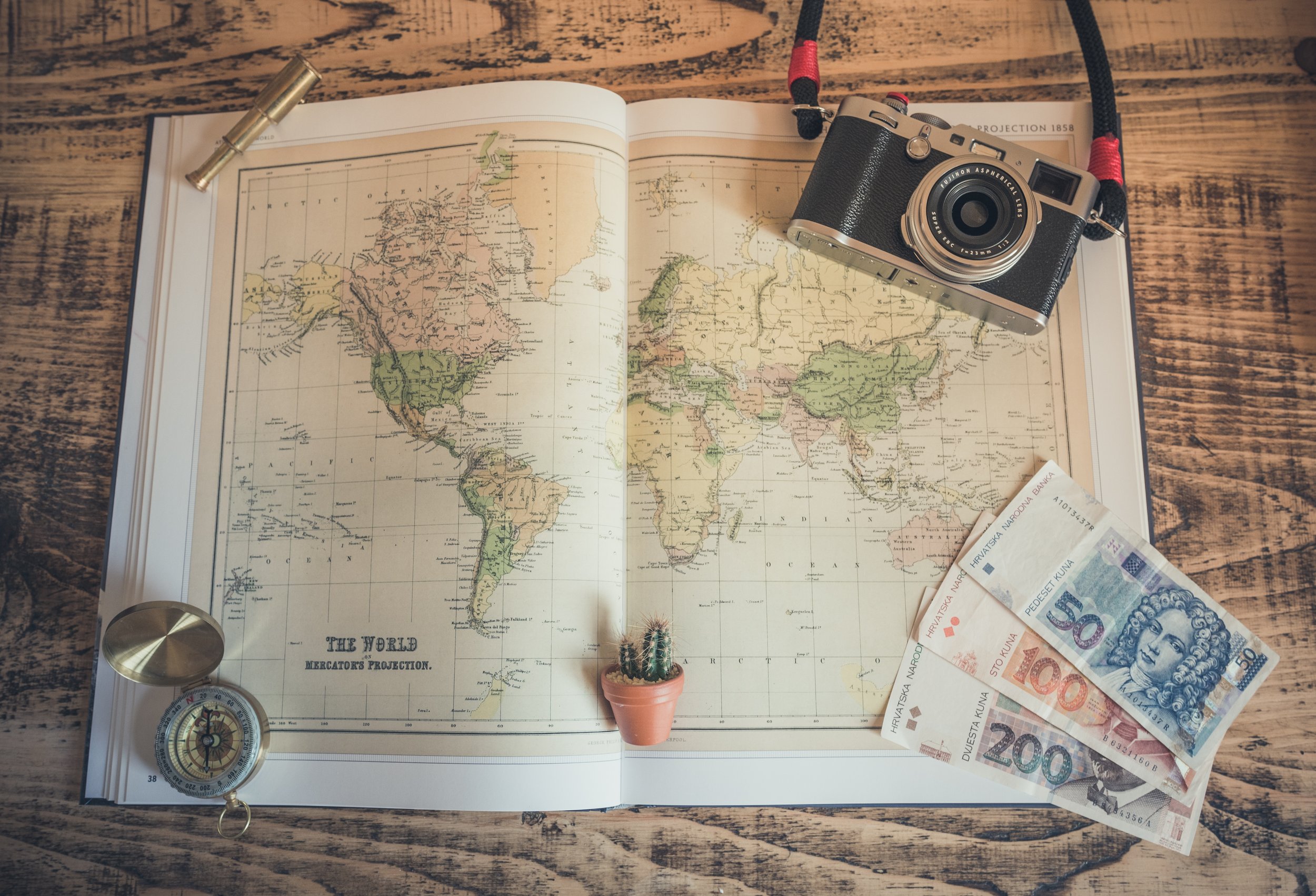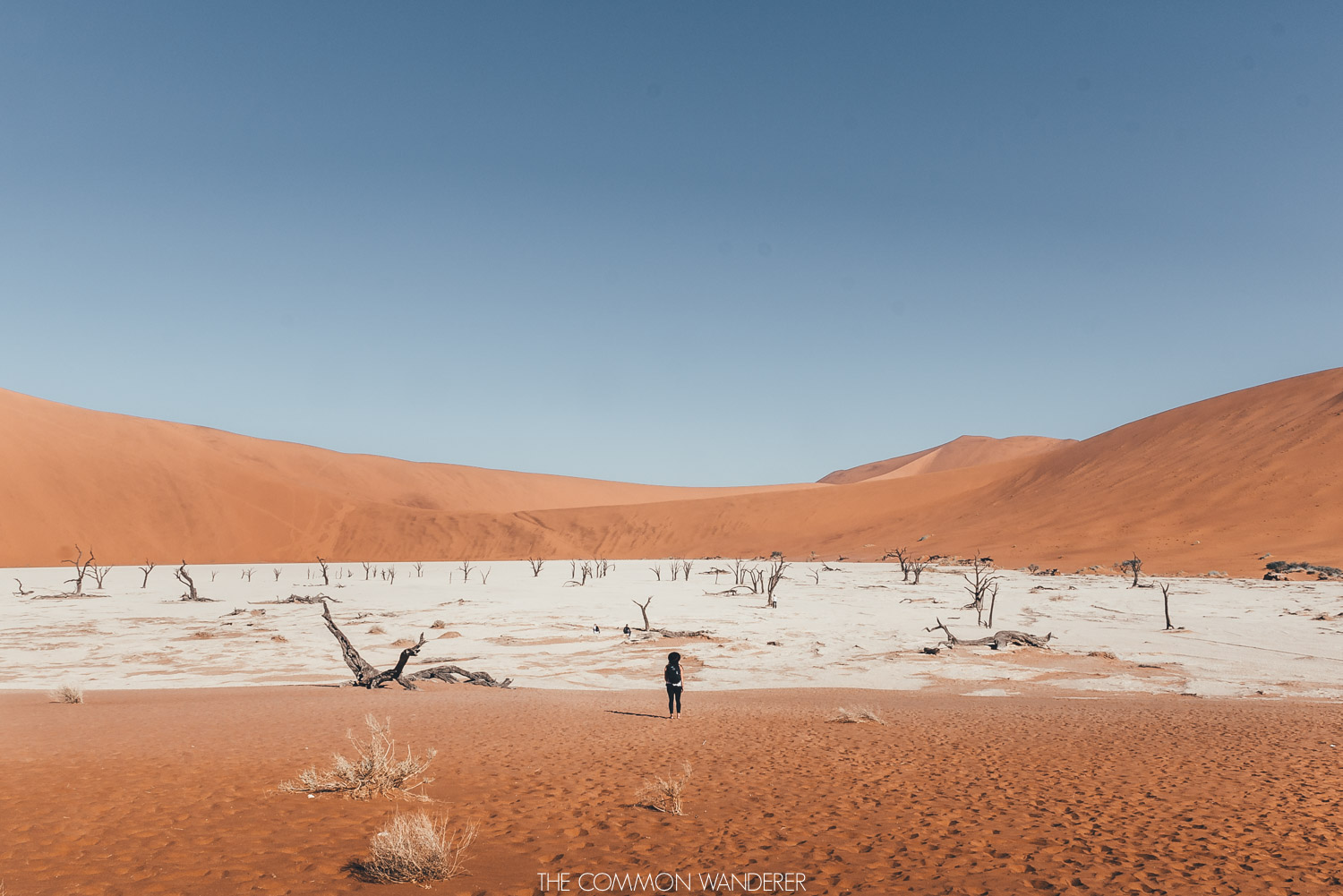Eight Things To Consider Before You Travel
Photo by Chris Lawton on Unsplash
So you’ve made the decision to explore an exotic destination? Awesome! We salute you. There's nothing quite like the excitement of an upcoming trip; planning out your tourist spot hopping, anticipating the culinary delights awaiting you, getting lost in daydreams of warm skin, salty air, and colour.
However, before you step on board that plane, train or bus, there are a few not-so-fun things you really need to consider. We're talking those easily forgotten yet vitally important organisational aspects of your trip that make or break a trip.
So that you can spend more time concentrating on the fun stuff, we’ve listed the top eight things to consider before you travel here.
PRE-DEPARTURE TIPS: WHAT TO CONSIDER BEFORE YOU TRAVEL
1. Is your Passport up to date?
If you’re busy planning your next exciting adventure, get your passport out of the cupboard and check its validity.
Why?
Because it will need to be valid for at least 6 months after your arrival in your chosen destination.
You don’t want to be stranded at your destination unable to enter because you forgot to check. If it's close to expiry, apply for it to be renewed as soon as possible to save any stress!
This generally take 2-4 weeks.
Photo by Alex Robert on Unsplash
2. Do you need Visas?
That epic trip you're planning… do you know if you need a visa/s? Probably! Although most popular tourist destinations offer e-visas or visa on arrival, some must be organised ahead of your departure through your local consulate.
It pays to check regardless as it will be a devastating flight home if you're denied entry.
Australians can check the visa requirements of individual countries here.
3. Driving overseas? You’ll need a licence
Planning an epic road trip through Africa? Driving through Big Sur in America? Hiring a car for a few days in Europe?
Whether your country of origin's drivers' licence will be valid varies across different countries and regions, so your safest bet is to organise a valid international driving permit (IDP).
These can be obtained through relevant authorities in your own country, but for those in Australia, click here.
4. Currency or travel card?
Back in the old days of travel you needed cash or travellers cheques to fund your adventures. Those days are gone, thanks to the advent of ATM’s, credit cards and travel cards. Now, you can access your money basically anywhere in the world (save for a few African towns, which we found out the hard way in 2014).
Our tip? Organise a travel bank card through your local bank.
Not only do they add an extra layer of security, you can easily load currency (you can choose up to 10) onto your travel card and use it as a credit, debit or bank card. You won't be charged fees for transferring or withdrawing from your normal accounts.
When arriving into a destination, especially one off the usual tourist trail, withdraw cash (we recommend at least $100 worth) from the first ATM or bank you see. That way, you can pay for any upfront costs (taxi, accommodation) without any worries.
We do suggest carrying American dollars in a secret location, usually sewn into your bags, just in case. You just never know when they might come in handy.
Photo by Chris Lawton on Unsplash
5. Vaccinations and medications
We know, they hurt! But they are essential in keeping healthy on your adventures. Also consider that some countries do not allow entry unless they sight an immunisation card. For example, most countries in Africa won't grant access without proof of a Yellow Fever vaccination.
Before you leave, check with your doctor that you’re up to date with all the required immunisations for the country you're travelling to. Once you've got all your jabs, check with them about any other potential medication requirements.
In our experience you’ll commonly need to get malaria medication, antibiotics and Imodium (a lifesaver!) but that info is best left to the experts.
While you'll find medication almost anywhere in the world, you won’t want to be caught out so be sure to fill your scripts before you go. Always have an emergency stash hidden somewhere in your bag just in case and remember to use zip lock bags to store your medication.
Photo by pina messina on Unsplash
6. Hope for the best, plan for the worst
99% of the time, you head off on your adventure, everything goes to plan (minus a bout or two of mild food poisoning), and you get home with some awesome stories to tell. Sometimes though, things don't go to plan (we can vouch for this!).
When this happens, things can quickly go from bad to worse as you battle language barriers, unfamiliar illnesses and differences in medical treatments, being stranded without your possessions (or having them lifted from you!), or worst case - being caught in the midst of a natural disaster or other such event.
This is where travel insurance comes in. Never, ever leave without organising appropriate cover for yourself. Whatever it costs you before you leave is nothing compared to the price you and your dream holiday will pay if it all goes south. Be safe, and you won't have to be sorry down the track. Now go and book some!
7. Learn about where you’re going
Before you arrive into a destination, do some research. Learn a few key phrases in the language, understand and respect any cultural differences (ladies: trade your short shorts for a maxi or loose pants when visiting any temples!) and most importantly, embrace the differences.
You’ll be blown away by the hospitality of locals if you just put in a little effort!
Photo by John Matychuk on Unsplash
8. Register your travel plans
We hate to sound like your parents here, but you should also register your plans with your respective foreign office (the Australian Smart Traveller website for those Aussies playing along), and leave a general itinerary with someone at home.
If you need embassy help (or the embassy in the country you're visiting needs to contact you in an emergency) this is the easiest way for them to be able to track you down. Your foreign office's websites are also generally full of important and relevant information for any type of traveller.
Even if your plans are pretty vague it's also good to leave a general itinerary of your trip with someone at home just in case.
Think there's something we've forgotten to do before travel?
Let us know in the comments below; you might save the day for a fellow traveller!















